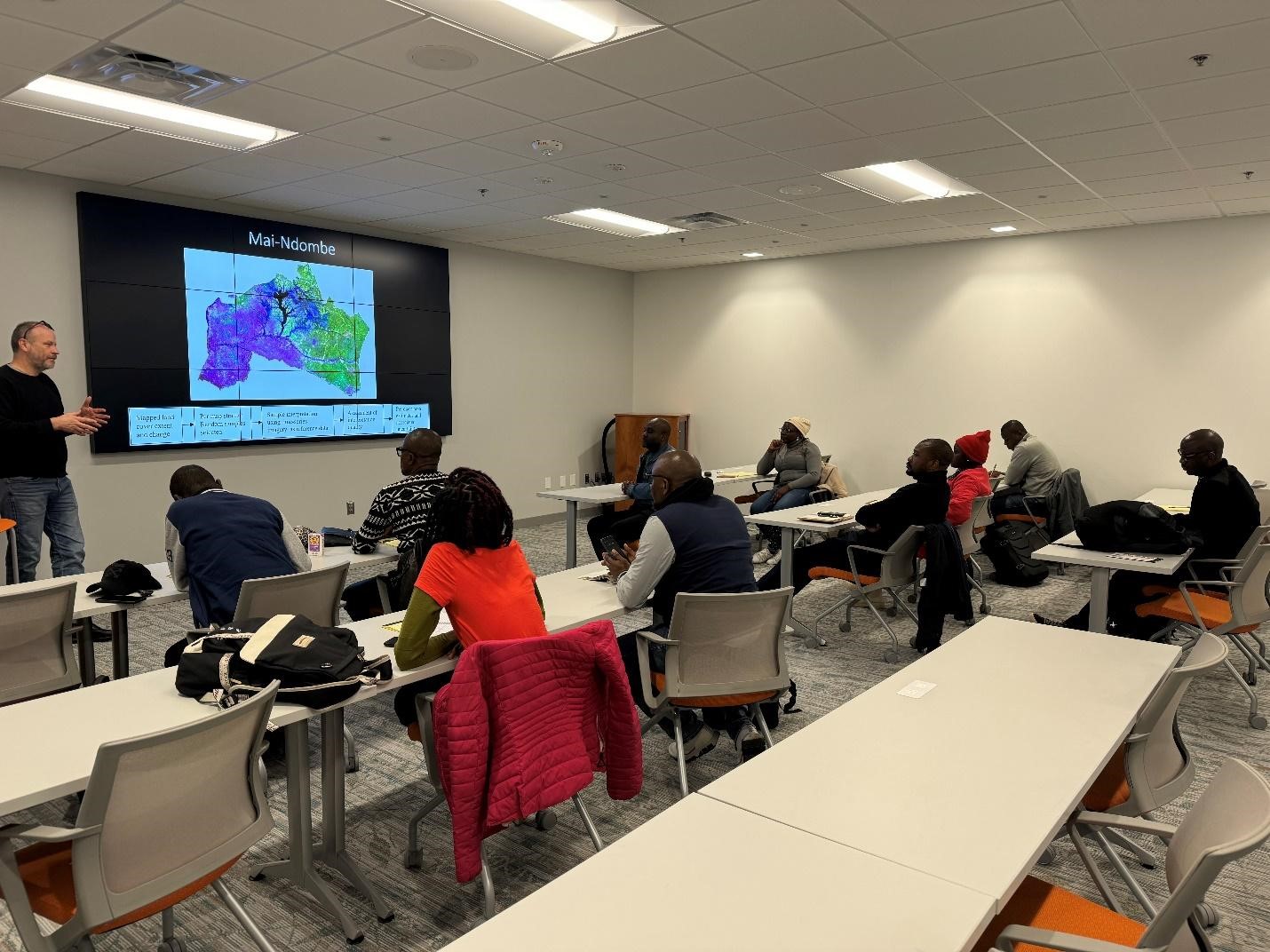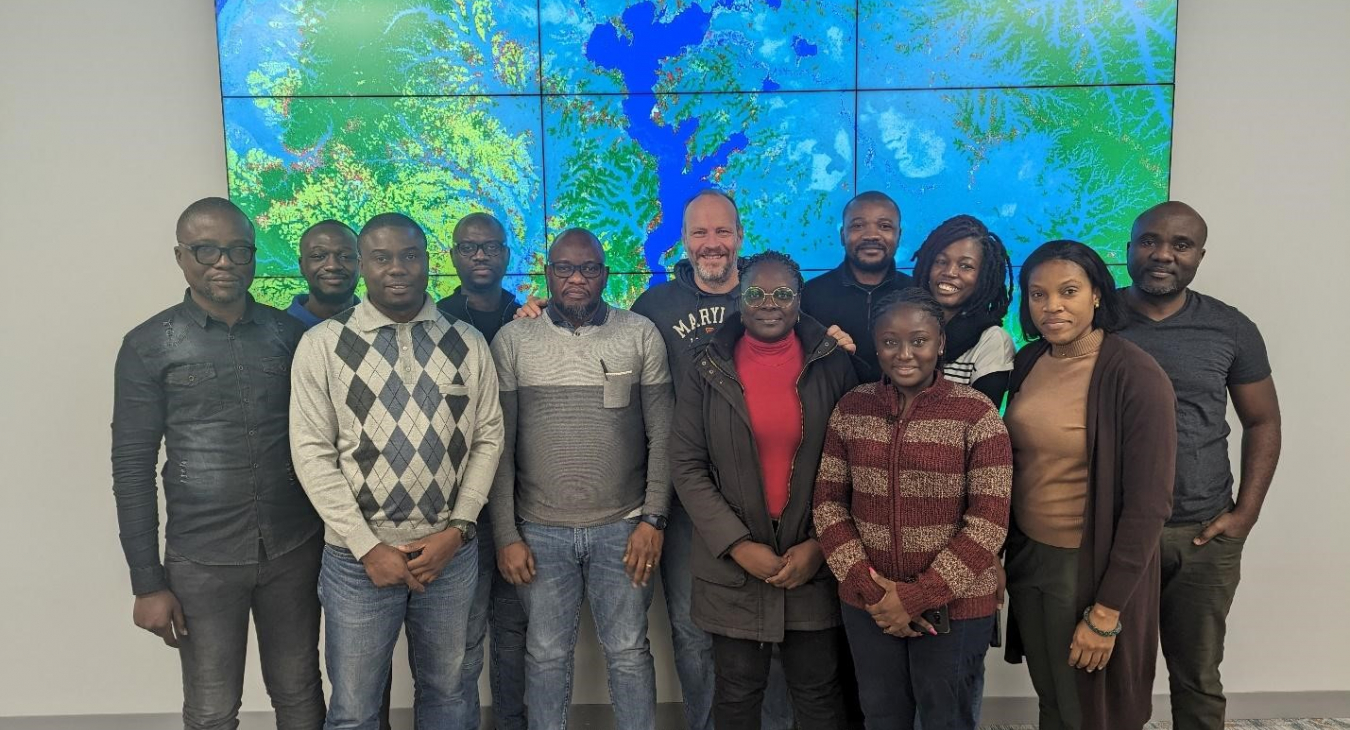As part of the USAID CARPE program and with the support of the World Bank, the Global Land Analysis and Discovery laboratory (GLAD lab), Department of Geographical Sciences is hosting a training workshop to strengthen forest monitoring efforts for the Democratic Republic of the Congo (DRC) and the Republic of Congo (ROC).
From Nov. 28th to Dec.18th the workshop will train participants from both the DIAF (Direction des Inventaires et Aménagement Forestiers) - the national agency of the Ministry of the Environment of the DRC responsible for forest monitoring and the CNIAF (Centre National d’Inventaire et d’Aménagement des Ressources Forestières et Fauniques) - the national agency of the ROC's Ministry of the Forest Economy.
The GLAD lab has previously collaborated with the DRC and ROC governments to support their forest monitoring efforts. GLAD lab members Professor Matt Hansen, Research Professor Peter Potapov, and faculty specialists André Mazinga, Eddy Bongwele, Heritier Koy, Patrick Lola Amani, and Tatiana Nana are leading the training workshop. This workshop is centered on technology transfer of data, tools and algorithms developed by the GLAD lab to enable both countries implement and update their forest monitoring efforts for programs like Reducing Emissions from Deforestation and Forest Degradation in Developing Countries ( REDD+).

The specific objectives of this workshop are:
- Mapping the land cover land use including water surface, non-forest land, dense humid forest, wetland forest, and other tree cover for provinces of Sangha Likoula, Republic of Congo; and Mai-Ndombe province, DR Congo
- Designing the sampling for both regions, including selection of strata and sample size allocation, to minimize uncertainties in the activity data estimates for the target classes
- Collecting the reference data for the selected sampling units for the period 2021-2022 by implementing very robust quality assurance/quality control procedures to ensure the quality of the reference data
- Estimating deforestation and forest degradation activity and associated uncertainties, based on the reference sample data for the monitoring period 2021-2022 for both Mai-Ndombe (DRC) and Sangha-Likouala (ROC).
The mapping and area estimation methods are applied using GLAD Landsat time series data and GLAD tools / algorithms. The result of this work will be combined with emissions factors to estimate carbon emissions and removals from deforestation and forest degradation. These emissions from the performance period can then be compared with historic emissions to receive results-based payments or carbon credits.
Learn more about the GLAD lab by visiting glad.umd.edu and following @UMD_GLAD on Twitter/X.

